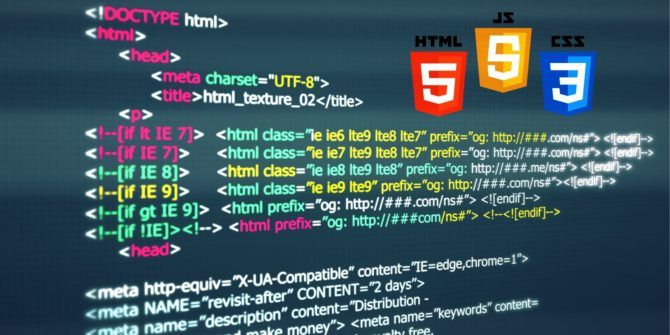1. HTML and CSS

Don’t be deceived thinking these are the easy parts.We are still learning how to master HTML5 and CSS3 to create fast and beautiful experiences in browsers across our growing list of devices. That's why many front-end developers (a.k.a. user-experience (UX) designers/engineers) are earning higher wages than server-side developers these days. And for good reason; UX engineering is hard. (Learn more in 5 Things You Need to Know About HTML5.)
2. JavaScript

Full-stack JavaScript is hot right now, and it won’t cool off anytime soon (if ever). While many developers think they "know JavaScript" because they can write a bit of jQuery (which is important, of course), the language is quickly turning into a ubiquitous and robust tool for servers, devices, robots and even web browsers. By learning this, you will avoid wasting time diving into asynchronous functional programming and prototype-based programming. You'll also learn a core set of JavaScript libraries and frameworks.
3. Frameworks
JavaScript, Ruby, PHP, Java, C# and Python all have multiple frameworks designed to make web development more pleasant (i.e. getting more done in less time). Pick one and learn it really well. Build multiple web apps with it and make sure you’ve covered as many different features as possible on both the server and browser side of things. Going in depth with one language makes it easier to learn new frameworks down the road.
4. Caching

Speed is one of the most important factors for a great user experience on the web. Sadly, it is rare for developers to know how to design and implement a decent caching strategy. Relying on an unnecessary number of calls to a database and/or file system is a great way to slow things down and annoy users. Web developers should think about how to get as much data in memory (e.g. with something like Memcached) as reasonably possible, and then how to get things cached at the file system level to avoid making calls to a database (which is the speed bottleneck for most apps). Most modern frameworks have built-in ways to use memory and file-system caching (both partial and full-page caching), so take the extra time to learn how to do this even if you are not expecting high amounts of traffic. (Learn a few tricks in 5 Tech Experts Share Their Caching Secrets.)
5. Background Tasks
Online tutorials, in particular, are notorious for not training web developers how to think in a paradigm of kicking processes to the background to speed up user experiences. For example, when submitting a sign-up form it is common for an app to send out one or more emails. However, if this is done during the same request as receiving the form data, it can create a slow experience for the user. If the emails are sent a few seconds after a background task, no big deal. These little things matter. Again, speed is really important. Web developers should incessantly be thinking about how to design their apps to be as fast as possible at every level of the stack.
6. DevOps
Last but (not even close to) least, web developers need to be familiar with the rapidly growing set of computing technologies for designing, scaling, migrating, testing, optimizing, continuously integrating and deploying code in the cloud. DevOps is the merged set of tasks that exist now between the old-school roles of "developer" and "IT professional." Google, Amazon, Microsoft and a growing number of tech giants have a truly remarkable set of web services available for developers (and, by the way, the process of using them is getting easier).
It really is an exciting time to be a web developer. There are extremely fun technologies out there that make our jobs enjoyable. However, as I mentioned above, don’t expect to learn these technologies overnight. It takes years to get to a reasonably proficient level, and the process of learning (as you would expect) never ends.
A great way to accelerate your skills, however, is to learn directly from practicing developers. And, while there is no substitute for in-person instruction, a growing number of online courses and tutorials are available that search engines are doing a great job revealing at the top of their results. So, begin by searching for tutorials and articles in the languages, libraries and frameworks of interest. Then, talk to friends who are web developers (if you don’t have any yet, Twitter and Stack Overflow are great places to find them) and ask how you can best prepare yourself to enter the field.
There are tons of books you can get online. If you need any assistance for stating up your career as a web developer, contact olanrewajudavid@gmail.com
To get more of this series, please comment below and subscribe to this blog for more updates.
There are tons of books you can get online. If you need any assistance for stating up your career as a web developer, contact olanrewajudavid@gmail.com
To get more of this series, please comment below and subscribe to this blog for more updates.








No comments:
Post a Comment